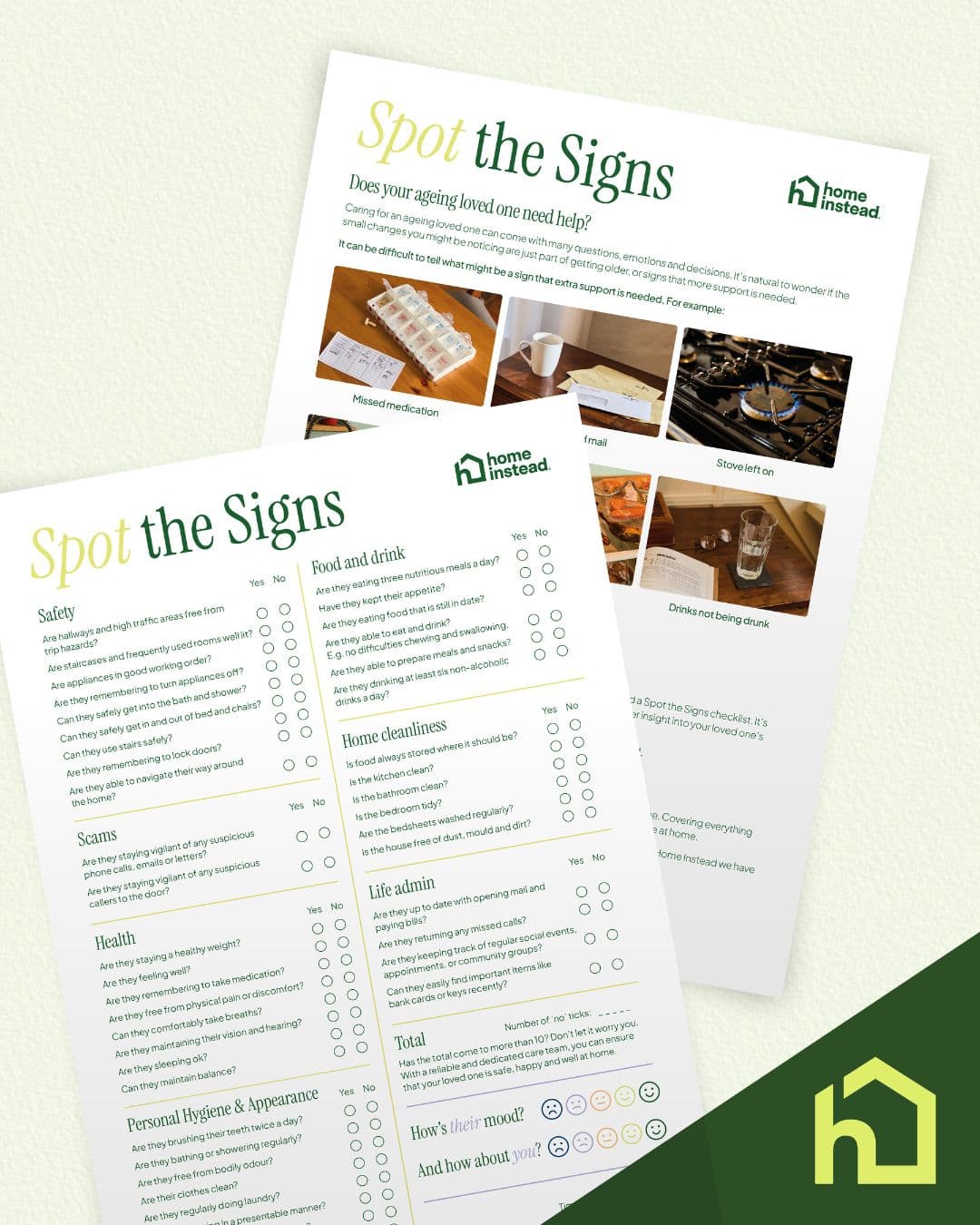Spotting the Signs in our Loved Ones:

As loved ones grow older, it’s natural to observe changes in their memory, physical health and daily routines. While some of these changes are part of the ageing process, others may be early indicators that additional home care support is needed. Understanding what to look for and recognising when it may be time to consider care, can make a significant difference in maintaining independence, promoting wellbeing, and giving peace of mind to both older adults and their families.
Common Reasons Families Reach Out for Home Care
At Home Instead Tavistock and Tamar Valley, we regularly speak to families who are concerned that a loved one close to them is no longer coping as well as they used to. A recent nationwide survey of 100 Home Instead offices revealed the most common reasons families reach out to us. The leading concern is memory loss, mentioned in 70% of enquiries. This may involve frequently misplacing items, forgetting appointments, or repeating conversations. Personal hygiene is another key area of concern (48%), with families noticing less frequent bathing, wearing the same clothes for days, or a decline in grooming habits.
Medication management is also a major issue (44%), especially when multiple prescriptions are involved. Missed doses or taking the wrong medication can pose a serious health risk. Nutrition and weight changes were raised in 31% of calls, with families often worried that their loved one is skipping meals, eating poorly, or losing/gaining weight without explanation. Safety concerns (also 31%), such as forgetting to turn off appliances, leaving doors unlocked, or unsteadiness on the stairs, are other important warning signs.
Beyond these key signs, families often speak of increased isolation, reduced mobility, difficulty managing household tasks, or a general sense that “things aren’t quite right.” Each situation is different, but what these signs often reflect is a slow shift in someone’s ability to manage daily life independently.
Why Early Home Care Makes a Big Difference
Spotting these behaviours early gives families the chance to act before a crisis happens. Putting support in place proactively, whether through companionship, meal preparation, personal care or live-in care, can greatly enhance quality of life.
Franco Moller, owner of Home Instead Tavistock and Tamar Valley explains: “It’s never easy to start a conversation about care, but talking early, before there’s a crisis, can make a real difference. We often find that gentle support, introduced at the right time, helps older people stay safely in the home they love, surrounded by the memories and routines that bring them comfort.”
Free Download: Spot the Signs
To help support families in recognising these signs, we’ve developed a free Spot the Signs Checklist, which is available to download from our website. If offer practical guidance on the behaviours and patterns to look out for and encourages families to think about how both their loved one, and they themselves, are coping. It also helps start those sensitive conversations about care in a supportive, thoughtful way.
Get in Touch With Your Local Care Experts
Taking the first step in exploring care can feel overwhelming, but you don’t need to do it alone. Home Instead Tavistock and Tamar Valley’s highly trained team of care professionals, rated Outstanding by the CQC, is here to support you every step of the way. We offer a range of personalised home care services tailored to individual needs, from support with medication and personal care to companionship, dementia care, respite and live-in support. You can learn more about what we offer on our care services page.
If you’re noticing changes in someone close to you, get in touch with us today on 01822 258292 to learn more about how we can help. We’re proud to support families across West Devon and East Cornwall, from Bude to Torpoint, including Tavistock, Launceston, Saltash and Plymouth, helping you find the right care, at the right time.